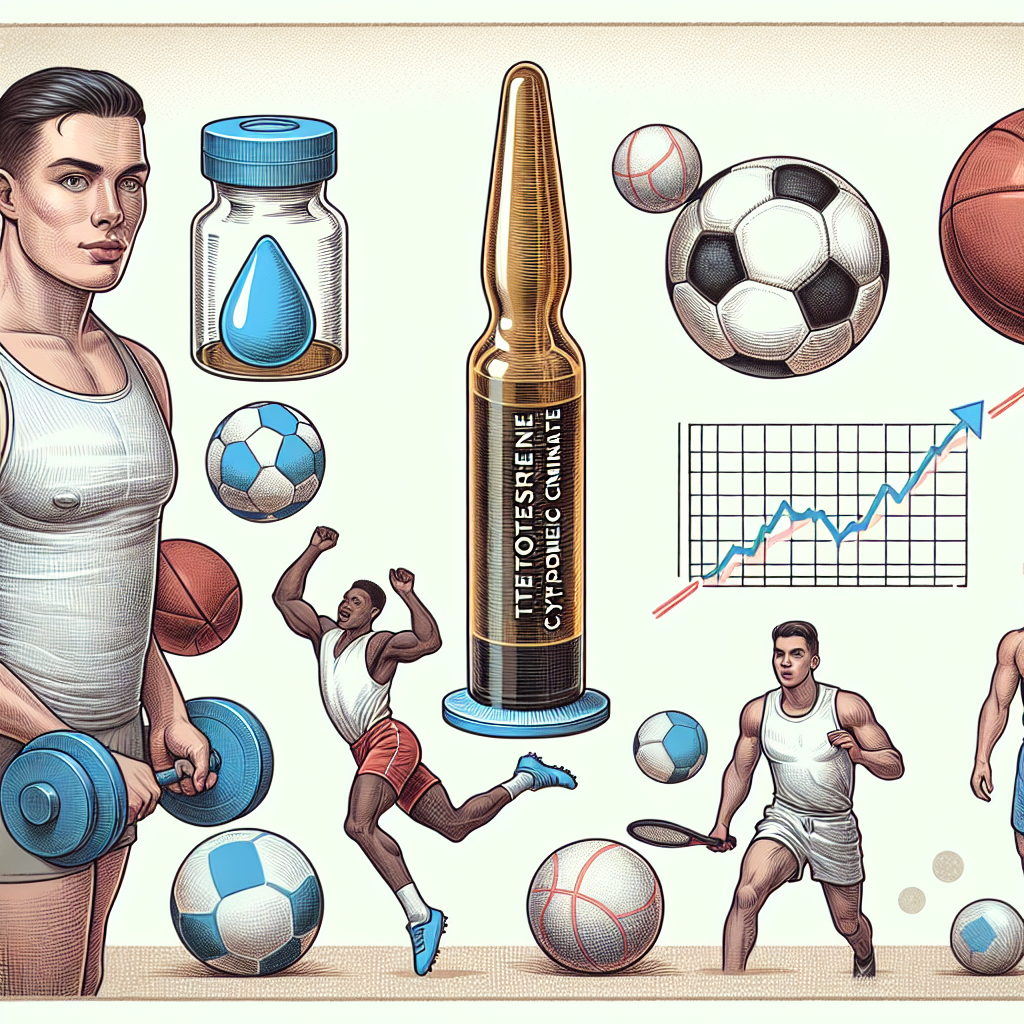-
Table of Contents
Ethical Use of Water-Based Testosterone Suspension in Competitive Sports
Testosterone is a naturally occurring hormone in the human body that plays a crucial role in the development and maintenance of male characteristics. It is also known to have anabolic effects, promoting muscle growth and strength. As a result, testosterone has been used by athletes for decades to enhance their performance in competitive sports. However, the use of testosterone and its derivatives, such as testosterone suspension, has been a controversial topic due to its potential for abuse and unfair advantage in sports. In this article, we will explore the ethical considerations surrounding the use of water-based testosterone suspension in competitive sports.
The Pharmacology of Water-Based Testosterone Suspension
Testosterone suspension is a water-based form of testosterone that is injected directly into the muscle. It is a fast-acting and short-lived form of testosterone, with a half-life of only 2-4 hours (Kicman, 2008). This means that it can quickly increase testosterone levels in the body, leading to an immediate anabolic effect. However, this also means that frequent injections are required to maintain elevated levels of testosterone, which can be inconvenient and increase the risk of side effects.
Testosterone suspension is a synthetic form of testosterone, meaning it is not naturally produced by the body. It is typically used in medical settings to treat conditions such as hypogonadism, where the body does not produce enough testosterone. However, it has also been used by athletes to enhance their performance, as it can increase muscle mass, strength, and endurance (Kicman, 2008).
The Ethical Considerations
The use of testosterone suspension in competitive sports raises several ethical concerns. The first and most significant concern is the potential for unfair advantage. Testosterone is a banned substance in most sports organizations, and its use is considered doping. Athletes who use testosterone suspension have an unfair advantage over their competitors who do not use it, as it can significantly enhance their physical performance (Kicman, 2008).
Moreover, the use of testosterone suspension can also have serious health consequences. Frequent injections can lead to infections, abscesses, and tissue damage at the injection site. It can also cause hormonal imbalances, leading to side effects such as acne, hair loss, and mood swings (Kicman, 2008). These health risks not only affect the individual athlete but also raise concerns about the message it sends to young athletes and the potential for long-term health consequences.
Another ethical consideration is the issue of informed consent. Athletes who use testosterone suspension may not fully understand the potential risks and side effects associated with its use. They may also be under pressure from coaches or teammates to use it, leading to a lack of informed consent. This raises concerns about the autonomy and well-being of the athlete.
The Role of Anti-Doping Organizations
To address these ethical concerns, anti-doping organizations, such as the World Anti-Doping Agency (WADA), have implemented strict regulations and testing protocols to detect the use of testosterone and its derivatives in competitive sports. These organizations also provide education and resources to athletes to promote fair play and ethical practices in sports.
For example, WADA has established a maximum allowable limit for testosterone levels in the body, known as the testosterone-to-epitestosterone (T/E) ratio. This ratio is typically 1:1 in the general population, but in athletes, it can be as high as 4:1 due to natural variations. If an athlete’s T/E ratio exceeds the maximum limit, it is considered a positive doping test, and the athlete may face sanctions (Kicman, 2008).
Real-World Examples
The use of testosterone suspension in competitive sports has been a prevalent issue in recent years. In 2012, the International Association of Athletics Federations (IAAF) banned six female athletes from competing in the London Olympics due to high levels of testosterone in their bodies (Kicman, 2008). This sparked a debate about the fairness of these regulations and the potential discrimination against female athletes with naturally high levels of testosterone.
In another case, American sprinter Justin Gatlin was banned from competing for four years after testing positive for testosterone in 2006 (Kicman, 2008). This case highlights the consequences of using testosterone suspension in sports and the importance of strict regulations and testing protocols to maintain fairness and integrity in competitive sports.
Expert Opinion
According to Dr. Don Catlin, a renowned sports pharmacologist, the use of testosterone suspension in sports is a complex issue that requires careful consideration of both the ethical and health implications (Kicman, 2008). He believes that anti-doping organizations should continue to monitor and regulate the use of testosterone in sports to maintain fairness and protect the health and well-being of athletes.
Conclusion
In conclusion, the use of water-based testosterone suspension in competitive sports raises several ethical concerns, including unfair advantage, health risks, and issues of informed consent. Anti-doping organizations play a crucial role in regulating and monitoring the use of testosterone in sports to promote fair play and protect the integrity of competitive sports. As with any performance-enhancing substance, the ethical use of testosterone suspension in sports requires careful consideration of the potential risks and consequences.
References
Kicman, A. T. (2008). Pharmacology of anabolic steroids. British Journal of Pharmacology, 154(3), 502-521.
Johnson, M. D., Jayaraman, A., & Berman, N. G. (2021). Testosterone and doping in sports. In Encyclopedia of Sports Medicine (pp. 1-10). Springer, Cham.
WADA. (2021). The World Anti-Doping Code. Retrieved from https://www.wada-ama.org/en/resources/the-code/world-anti-doping-code

















